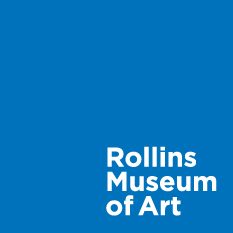Jun Kaneko (Japanese, b. 1942)Untitled, 2003Glazed ceramicGift of Alan Ginsburg. 2017.17 Jun Kaneko Jun Kaneko was born in Nagoya, Japan in […]
The Secret, Alachua, FL by Photographer Michael Bühler-Rose
How The Secret, Alachua, FL by photographer Michael Bühler-Rose helps expand our sense of what cultural exchange might mean.
The Intersections of Art and Business Education
I recently gave the following address to a group of alumni from the Crummer Graduate School of Business. As Rollins […]
Lorna Simpson: Artist and Pioneer of Conceptual Photography
A pioneer of conceptual photography, Lorna Simpson is best known for her large-scale works combining images and text. Simpson’s photography often questions and challenges conventional views on gender, sexuality, race, identity, and culture in the United States.
Melvin Edwards: Weapon of Freedom at Rollins Museum of Art
Melvin Edwards (American, b. 1937)Weapon of Freedom, 1986Welded steel11 x 9 x 6 in.The Alfond Collection of Contemporary Art, Gift of […]
Celebrate Black Artists With Resources from the Rollins Museum of Art
The Rollins Museum of Art honors and recognizes the impact that Black artists have in art and culture. Explore the resources below that showcase […]
Beyond Our Walls: 8 Ways to Engage With Rollins Museum of Art Even When the Museum is Closed
In person and online offerings beyond the walls of The Rollins Museum of Art
Works by American Photographer Carrie Mae Weems in the Rollins Museum of Art Collection
Gain insights into the works of American Photographer Carrie Mae Weems that are featured in the permanent collection at The Rollins Museum of Art.
Carmen Herrera’s quest for formal simplicity
Carmen Herrera has been described as a “quiet warrior of her art” in her uncompromising commitment to abstraction over decades […]
Artist Francisco Zúñiga’s Work Speaks Volumes
Francisco Zúñiga was born in 1912 in San José, Costa Rica where his father, Manuel María Zúñiga worked as a […]
Tar Beach by Faith Ringgold, From the RMA Collection
As an artist and activist, Ringgold’s career has been dedicated to exploring themes of race and gender equality. She grew up in the creatively fertile Harlem Renaissance, a time and place where perceptions of black culture and identity were redefined. Her work incorporates the narrative traditions of quiltmaking and African American history with great resonance, serving as platform to share her story and that of those before her.
Work of the Week: Danh Vo, “We The People”
Danh Vo’s We The People sheds light on the fragility and malleability of the concepts of freedom and democracy. Created as a series of 250 pieces, it recreates a full-scale replica of the Statue of Liberty, originally constructed by Frederic-Auguste Bartholdi. Vo intentionally broke up the replica, its many pieces entering the permanent collections of museums worldwide. The fragments’ diasporic trajectory recall the multiplicity of individual journeys that made their way at the foot of Lady Liberty as they reached Ellis Island. Inherently woven into its many segments is the lingering symbolism of the immigrant dream. But the stakes of that dream have changed, revealing the intricate power systems controlling the arm of democracy.
Work of the Week: Artist Marcus Jansen, “Plot #2”
Marcus Jansen (American, b. 1968) Plot #2, 2018, oil, enamels, mixed media on canvas, 60 x 48 in. Given by […]
Lavinia Fontana: The Dead Christ with Symbols of the Passion
Outside of my bias of having been trained as an Italienist, The Dead Christ with Symbols of the Passion, is […]
Ridley Howard: Paintings & Moments
Earlier this week I happened to get off the elevator on the second floor of The Alfond Inn. I had […]
